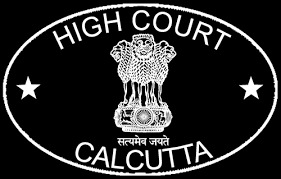1. This appeal is from jail against the judgment and order passed by learned Sessions Judge, U. A. D., Jorhat on 2-3-81 in Sessions Case No. 190 (S-G)/79.
2. The brief narration of the facts leading to the present appeal are that on 27-3-78 deceased Mangri Tate, wife of P. W. 2 Samru Tate went to sell some articles in some distant villages. She was accompanied by the appellant. When the deceased did not return in the same evening of 27-3-78, P. W. 2 the husband of the deceased made search of his wife but ultimately when the search did not produce any result, he lodged a missing report in the police station on 30-3-78 stating the fact that his wife went out of his house accompanied by a boy named Bimal (the present appellant) to sell some articles in some distant villages but had not returned by then. On 31-3-78 the dead body of the deceased was found on the sand of Dhansiri river buried under it. Her dead body was exhumed, inquest was held. Meanwhile a first information report was lodged with the Police wherein the name of the present appellant figures. On receipt of the enquiry report the police, after investigation, chargesheeted the appellant. II may be mentioned that during investigation till 7th April, 1978 the appellant was absconding and his whereabouts were not known. Ultimately the appellant was arrested on 8th April, 1978. During the course of investigation autopsy was held on the dead body by P. W. 1, Dr. Priti Bhusan Das who found multiple blisters/bruises all over the dead body. In the opinion of the Doctor which has gone unrebutted the deceased died of asphyxia by strangulation in her neck.
3. The trial Court charged the appellant under, Section 302 as well as u/s 201 of the Penal Code. During trial 8 witnesses including the investigating police officer and the Doctor who held the autopsy On the dead body were examined. On the basis of and on apprecation of the evidenee on record the trial Court returned the verdict of guilty of the appellant and convicted him under the aforesaid sections and sentenced to imprisonment for life u/s 302 and u/s 201 IPC for two years and with direction of both the sentences lo run concurrently.
4. Mr. A. K. Bordoloi, the learned Counsel representing the appellant has rightly submitted that there is no eyewitness to the occurrence. The only evidence that can be gathered from the deposition of the witnesses is that the appellant was accompanying the deceased from her village for selling some cakes out of which country liquor is brewed. There is also evidence to the effect as can be gathered from the deposition of P.W. 3 and P. W. 4 that at the point of coming back home the deceased and the appellant were seen together. The learned Counsel submits that the chain of events is not complete although the appellant was last seen with the deceased as to the factum of the complicity of the appellant in murdering or causing the death of the deceased.
5. Here the case is mainly on the circumstantial evidence on which mainly the trial Court has relied for convicting the appellant.
6. It is the settled principle of law that there is no legal infirmity in basing the conviction only on the circumstantial evidence; but in a case depending wholly on the circumstantial evidence before recording a conviction on its basis the court must be firmly satisfied (i) that the circumstances from which the inference of guilt is to be drawn, have ''been fully established by unimpeachable evidence beyond a shadow, of doubt; (ii) that the circumstan ces are of determinative tendency unerringly pointing towards guilt of the accused and (iii) that the circumstances, taken collectively are incapable of explanation on any reasonable hypothesis save that of the guilt sought to be proved against him. In
7. From the facts it appears that in this case the deceased was accompanied by the appellant, as she was going to sell some articles in different villages, that the deceased was seen together with the appellant in the evening while she was returning home, by P. W. 3, Lachmi Tata @ Maniram Chubha and P.W. 4, Manbahadur Gurung. P. Ws. 3 and 4 are independent and disinterested witnesses. They have testified that at the time of returning home the appellant along with the deceased were seen together. P. W. 3 has categorically stated that on the date of occurrence the deceased along with the appellant came to his residence at about 6 P. M. to collect some dues from him. He paid the dues amounting to Rs. 16/-. The witness asked them to stay for the night there but the deceased told him that as Bimal was with her there was no reason for being afraid in returning home. Accordingly they left his place. At his residence by lighting a new piece of bamboo, they left for their home. He has further stated that when the dead body was found, he went there and has testified that the same clothes were in the wearing of the dead body which she had put when she went to his residence on the day of occurrence. Similar is the statement of P. W. 4, who has deposed that the deceased along with the appellant went to his residence at about 4 P. M. on the date of occurrence. He has stated that after taking rest for some time there, both, of them went towards Kaliabilgaon. Apart from that we Have also the evidence of P. W. 5 John Biver who is the President of the Village Defence Party. It is found from his evidence that on 7-4-78 in the late hours of the night they took into custody the appellant and handed him over to. police. It is further found from hig evidence that the appellant confessed before him to the effect that on 27-3-78 at night he had throttled the deceased Mangri Tate, wife of Chamru Tate, P. W. 2 to death in the sand of Dhansiri river at Sewagnri and had buried the dead body in the sand of the river. This witness was cross-examined at great length but nothing of substance could have been extracted from him to demolish the effect of appellant''s extra-judicial confession. Further it is also found that since after his departure along with the deceased on 27-3-78 he was absconding till he was apprehended by the Village Defence Parly on 7-4-78. Although the appellant was accompanying the deceased, his abscondence as well as his failure to explain the same, also goes to show the conduct of the appellant.
8. On the overall consideration of the circumstances and the evidence of P. Ws. 3 and 4 read with the extra-judicial confession made before P. W. 5 we are left with no doubt that it was the appellant who had committed the offence of causing the death of Mangri Tate and after the death concealed her by burying the dead body in the sand of Dhansiri river. We do not find any infirmity in the conclusion reached by the trial Court on the evidence on record that the appellant was guilty of the offence charged.
9. In the result we do not see any merit in this appeal and the; same is dismissed.

